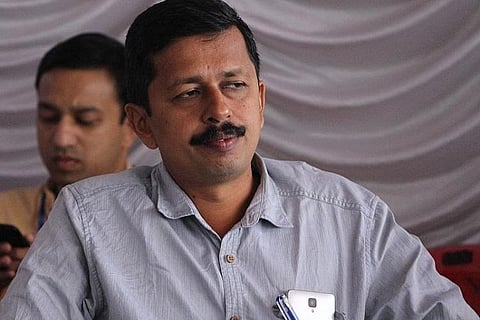

The Supreme Court on Wednesday dismissed the plea regarding S Hareesh’s novel Meesha, which ran into controversy after it was alleged that it insulted women and Hinduism.
A bench headed by CJI Dipak Misra said that a writer’s imagination must have freedom and cannot be compelled to be in a certain manner.
The court added that “subjective perceptions about a book should not be allowed to enter legal arena when it comes to censorship,” reported Bar and Bench.
A PIL was filed in the apex court by N Radhakrishnan. He first asked for the novel to be banned altogether, but then, in a U-turn, asked for the offending paragraphs alone to be taken down.
In July this year, S Hareesh decided to withdraw his novel, Meesha, which has was being published in a serialised manner in the Malayalam periodical, Mathrubhumi, following threats from Hindutva right-wing elements.
Two extracts of Meesha were released by Mathrubhumi over two weeks.
“I have decided to withdraw my novel because of the threats and attacks against me and my family,” Hareesh had told the Mathrubhumi News television channel, adding, “I am too weak to take on the people who rule the country. I worked on the novel for five long years.”
The 2018 Sahitya Akademi winner received a series of abuse on his Facebook wall from right-wing activists calling his novel an insult to Hinduism. There were also allegedly threats to attack him the way poet Kureepuzha Sreekumar was, in February 2018. Others suggested that Hareesh’s hands be chopped off.
The conversations between two characters of the novel is reported to have offended the Hindutva activists. In the conversation, the characters suggest that women dressing up to go to the temples are subconsciously making a declaration that they are ready for a sexual relationship. The character also says that when women don’t visit the temple for four or five days in a month, it is to make it clear that they are not ready for sex on those days.
While hearing Radhakrishnan's PIL, the SC bench had observed that there should not be a culture of banning books, unless it depicted something obscene and improper. Chief Justice of India Dipak Misra also noted that the controversial portion is merely a sarcastic dialogue between two characters.
On August 1, DC books, a publishing house based in Kerala, published the novel and was made available to bookstores across Kerala.